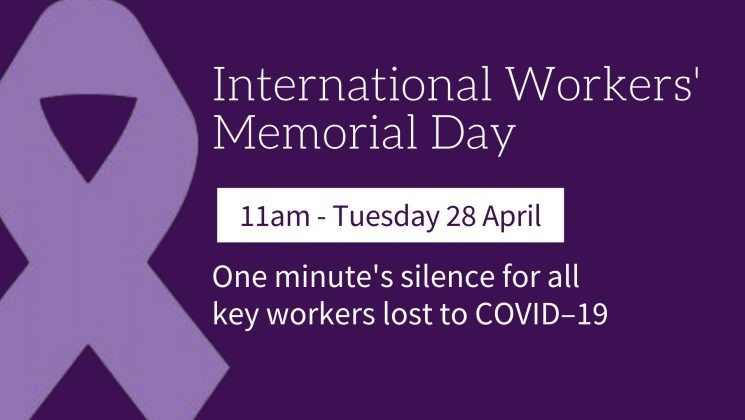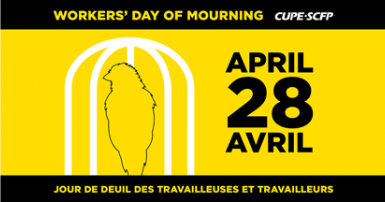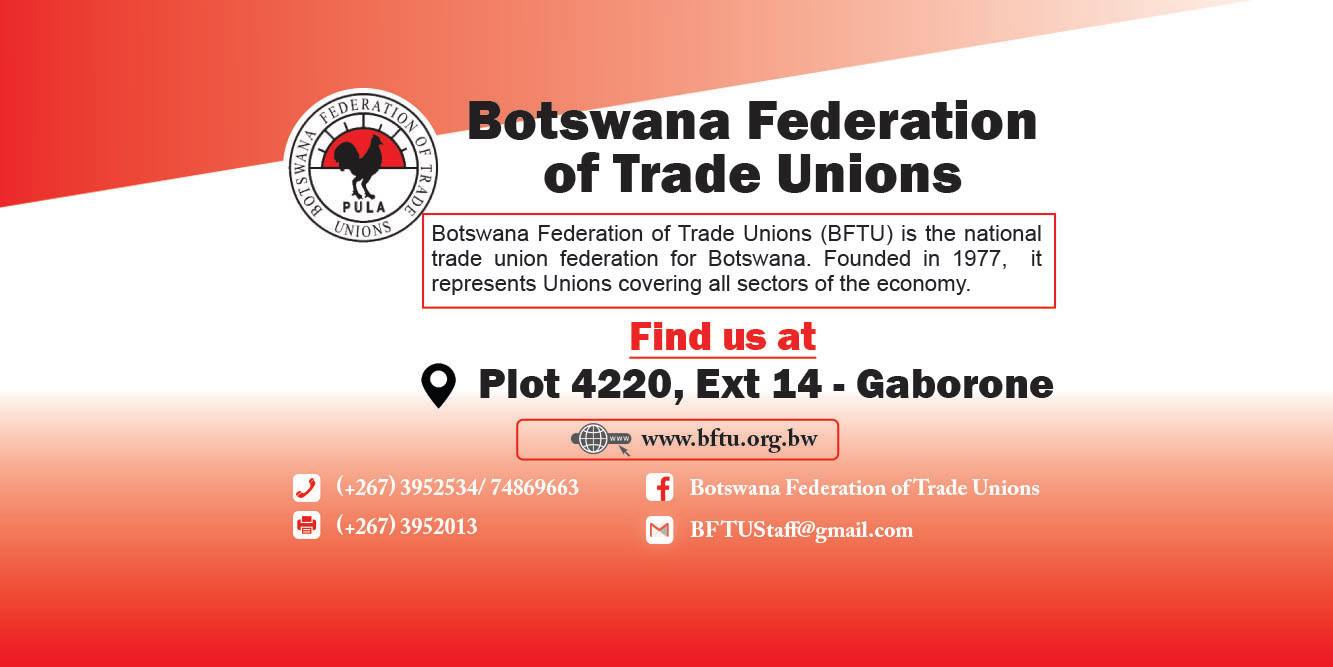
IWMD will give us the chance to remember the workers who have died because of COVID-19
Tuesday 28 April is International Workers’ Memorial Day, when we remember all those who have died because of their work – and renew our pledge to fight for the living.
In the year of coronavirus, this day of commemoration has never been more important. And that is why UNISON is asking the country to observe a minute’s silence, to remember all the health, care and other key workers who have already lost their lives to COVID-19.
The campaign for a minute’s silence at 11am next Tuesday was launched earlier this week by UNISON, the Royal College of Nursing and the Royal College of Midwives, which collectively represent more than a million NHS and public service workers, including porters, refuse collectors and care staff.

UNISON general secretary Dave Prentis said it would be “the ultimate tribute to remember workers who’ve lost their lives and put themselves in harm’s way to keep us safe and vital services running.
“Every year, the sacrifice of workers around the world is recognised, but this year has a special significance because of the pandemic.
“Thousands of key staff are on the frontline while the rest of us are in lockdown. That’s why we’ve issued this call for the whole country to take part and remember the sacrifices they’ve made. The best tribute we can all pay them is to stay inside to protect the NHS.”
Thousands of workers across the UK are caring for those suffering from COVID-19 or delivering vital public services that are vital for us all – potentially putting their own safety and even their own lives at risk.
In many cases, these workers know that, by simply doing their jobs, they are putting themselves at risk.
The risks faced by those working in the health and social care sectors has already been acknowledged, but there are also others – those working in childcare, police services and refuse collection, in hostels and rescue centres, in gas, water and electricity, and in transport services among them – whose work and dedication often goes unacknowledged.
Tragically, some of these workers have already died. In some cases, more could have been done to protect them, whether by better enforcement of social distancing, looking after workers with underlying health conditions or provision of adequate personal protective equipment (PPE) to keep them safe.
While improvements have been seen in some areas, more needs to be done – specifically in relation to assessing the risks our members are facing and ensuring that all staff who require it are getting the protective equipment needed to do the job safely.
UNISON has never been afraid to demand the highest standards for workers; we have not been afraid to speak out and hold the government to account on providing the right PPE when staff need it, and to hold employers to account who are not doing enough to keep their workers safe.
All of this adds to the importance of observing a minutes’ silence at 11am next Tuesday.
But other things that you can do include:
- tweeting us, @unisontheunion, your pictures of public service workers, whether of yourself, your colleagues or even those you may not personally know, continuing to do the jobs that are keeping us all safe – although don’t go out especially to get these;
- if you are having a problem getting the PPE you need to keep you safe, let us know here;
- email any other COVID-19 safety related issues to healthandsafety@unison.co.uk.
Coronavirus: what you need to know
https://www.unison.org.uk/news/article/2020/04/remember-covid-19-dead-international-workers-memorial-day/






